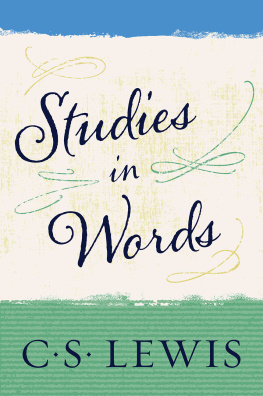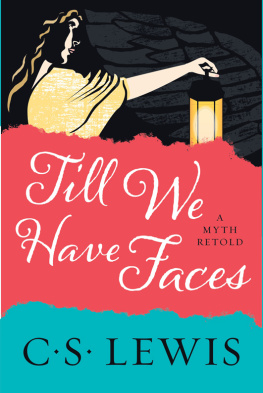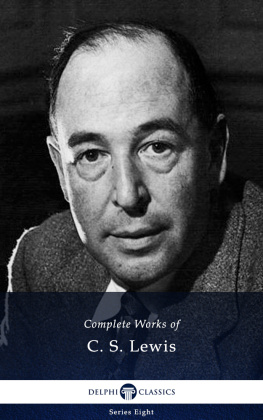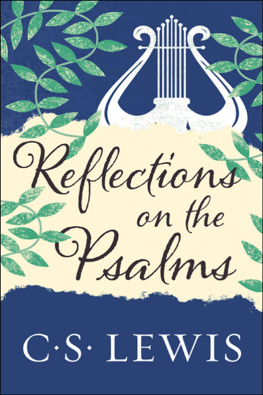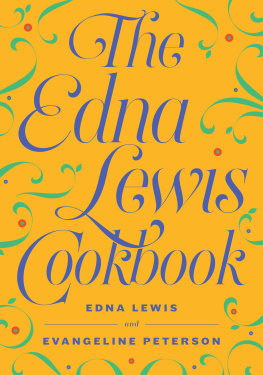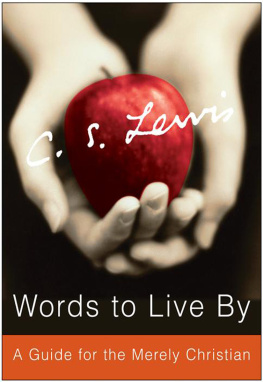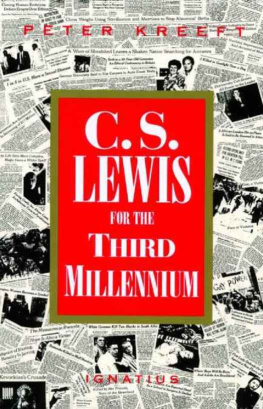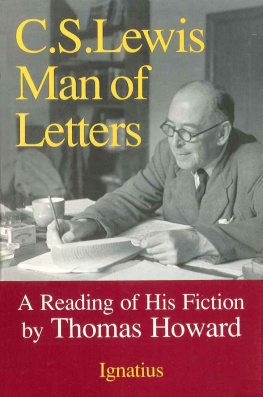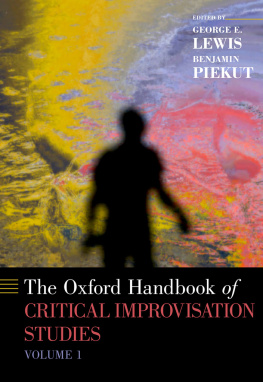C. S. Lewis - Studies in Words
Here you can read online C. S. Lewis - Studies in Words full text of the book (entire story) in english for free. Download pdf and epub, get meaning, cover and reviews about this ebook. year: 2013, publisher: HarperCollins, genre: Science. Description of the work, (preface) as well as reviews are available. Best literature library LitArk.com created for fans of good reading and offers a wide selection of genres:
Romance novel
Science fiction
Adventure
Detective
Science
History
Home and family
Prose
Art
Politics
Computer
Non-fiction
Religion
Business
Children
Humor
Choose a favorite category and find really read worthwhile books. Enjoy immersion in the world of imagination, feel the emotions of the characters or learn something new for yourself, make an fascinating discovery.
Studies in Words: summary, description and annotation
We offer to read an annotation, description, summary or preface (depends on what the author of the book "Studies in Words" wrote himself). If you haven't found the necessary information about the book — write in the comments, we will try to find it.
Studies in Words — read online for free the complete book (whole text) full work
Below is the text of the book, divided by pages. System saving the place of the last page read, allows you to conveniently read the book "Studies in Words" online for free, without having to search again every time where you left off. Put a bookmark, and you can go to the page where you finished reading at any time.
Font size:
Interval:
Bookmark:

TO STANLEY AND JOAN BENNETT
CONTENTS
This book is based on lectures given at Cambridge during the last few years and is primarily addressed to students. I have indeed hoped that others also might find it of interest but I must warn them what it is not. It is not an essay in the higher linguistics. The ultimate nature of language and the theory of meaning are not here my concern. The point of view is merely lexical and historical. My words are studied as an aid to more accurate reading and chosen for the light they throw on ideas and sentiments. The notes on some common types of semantic change given in the first chapter are a rough and ready attempt at practical guidance; if any deeper issues are raised by implication, this was not my intention.
C. S. L.
CAMBRIDGE
June 1959
1
INTRODUCTION
This book has grown out of a practice which was at first my necessity and later my hobby; whether at last it has attained the dignity of a study, others must decide. In my young days when I had to take my pupils through Anglo-Saxon and Middle English texts neither they nor I could long be content to translate a word in the sense which its particular context demanded while leaving the different senses it bore in other places to be memorised, without explanation, as if they were wholly different words. Natural curiosity and mnemonic thrift drove us, as it drives others, to link them up and to see, where possible, how they could have radiated out from a central meaning. Once embarked, it was impossible not to be curious about the later senses of those which survived into Modern English. Margins and notebooks thus became steadily fuller. One saw increasingly that sixteenth- and even nineteenth-century texts needed such elucidation not very much more rarely, and in a more subtle way, than those of the eleventh or twelfth; for in the older books one knows what one does not understand but in the later one discovers, often after years of contented misreading, that one has been interpolating senses later than those the author intended. And all the while one seems to be learning not only about words. In the end the habit becomes second nature; the slightest semantic discomfort in ones reading rouses one, like a terrier, to the game. No doubt I thus learned rather laboriously from my own reading some things that could have been learned more quickly from the N.E.D. But I would advise everyone to do the same so fara serious qualificationas his time allows. One understands a word much better if one has met it alive, in its native habitat. So far as is possible our knowledge should be checked and supplemented, not derived, from the dictionary.
At the same time a prospective reader may reasonably ask what difference there will be, for him, between reading one of my chapters and looking up one of my words in the dictionary. The answer is that I offer both less and more. Less, because I do not even attempt to be exhaustive; as regards the greater words I am already too old to hope for that. I offer more, first, because I drive words of different languages abreast. I depart from classical English philology by having no concern with sounds, nor with derivations simply as such. I am concerned solely with the semantic relations of, say, natura and nature ; the fact that one is derived from the other is for my purpose unimportant. That is why phusis and kind come in with just as good a title as natura. Something will be said later about what I think can be gained from such a procedure. And secondly, I have been able to say more about the history of thought and sentiment which underlies the semantic biography of a word than would have been possible or proper in a dictionary. I have of course checked my results by the N.E.D. It has often given me the perfect example for which I had searched my own reading in vain; often ( pereant qui ante nos! ) mortified me by anticipating the beautiful example I had already found for myself; and sometimes given what I thought, perhaps with foolish partiality, to be not so good an example as mine. In a few places, not without diffidence, I have ventured to dissent from it.
The readers I have principally in view are students. One of my aims is to facilitate, as regards certain words, a more accurate reading of old books; and therefore to encourage everyone to similar exploration of many other words. I am sometimes told that there are people who want a study of literature wholly free from philology; that is, from the love and knowledge of words. Perhaps no such people exist. If they do, they are either crying for the moon or else resolving on a lifetime of persistent and carefully guarded delusion. If we read an old poem with insufficient regard for change in the overtones, and even the dictionary meanings, of words since its dateif, in fact, we are content with whatever effect the words accidentally produce in our modern mindsthen of course we do not read the poem the old writer intended. What we get may still be, in our opinion, a poem; but it will be our poem, not his. If we call this tout court reading the old poet, we are deceiving ourselves. If we reject as mere philology every attempt to restore for us his real poem, we are safeguarding the deceit. Of course any man is entitled to say he prefers the poems he makes for himself out of his mistranslations to the poems the writers intended. I have no quarrel with him. He need have none with me. Each to his taste.
And to avoid this, knowledge is necessary. Intelligence and sensibility by themselves are not enough. This is well illustrated by an example within my own experience. In the days of the old School Certificate we once set as a gobbet from Julius Caesar
Is Brutus sick and is it physical
To walk unbraced and suck up the humours
Of the dank morning
and one boy explained physical as sensible, sane; the opposite of mental or mad. It would be crass to laugh at that boys ignorance without also admiring his extreme cleverness. The ignorance is laughable because it could have been avoided. But if that ignorance had been inevitableas similar ignorances often are when we are dealing with an ancient bookif so much linguistic history were lost that we did not and could not know the sense mad for mental and the antithesis of mental-physical to be far later than Shakespeares time, then his suggestion would deserve to be hailed as highly intelligent. We should indeed probably accept it, at least provisionally, as correct. For it makes excellent sense of the passage and also accounts for the meaning it gives to physical by a semantic process whichif we did not know that chronology ruled it outwe should regard as very possible.
So far from being secured against such errors, the highly intelligent and sensitive reader will, without knowledge, be most in danger of them. His mind bubbles over with possible meanings. He has ready to hand un-thought-of metaphors, highly individual shades of feeling, subtle associations, ambiguitiesevery manner of semantic gymnasticswhich he can attribute to his author. Hence the difficulty of making sense out of a strange phrase will seldom be for him insuperable. Where the duller reader simply does not understand, he misunderstandstriumphantly, brilliantly. But it is not enough to make sense. We want to find the sense the author intended. Brilliant explanations of a passage often show that a clever, insufficiently informed man has found one more mares nest. The wise reader, far from boasting an ingenuity which will find sense in what looks like nonsense, will not accept even the most slightly strained meaning until he is quite sure that the history of the word does not permit something far simpler. The smallest semantic discomfort rouses his suspicions. He notes the key word and watches for its recurrence in other texts. Often they will explain the whole puzzle.
Font size:
Interval:
Bookmark:
Similar books «Studies in Words»
Look at similar books to Studies in Words. We have selected literature similar in name and meaning in the hope of providing readers with more options to find new, interesting, not yet read works.
Discussion, reviews of the book Studies in Words and just readers' own opinions. Leave your comments, write what you think about the work, its meaning or the main characters. Specify what exactly you liked and what you didn't like, and why you think so.

